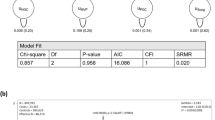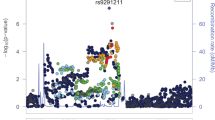Abstract
The μ opioid receptor is implicated in the reward, tolerance and withdrawal effects of alcohol and other drugs of abuse.1,2 This hypothesis is supported by the effects of alcohol on beta-endorphin release,3 of μopioid receptor agonists and antagonists on alcohol consumption,4,5 and by the activation of the dopaminergic reward system by both alcohol and opiates.6 In addition, the murine μopioid receptor locus, Oprm, is implicated as the major quantitative trait locus (QTL) affecting the different levels of morphine consumption between two inbred mouse strains that also exhibit differences in alcohol and cocaine consumption.7,8 Detection of genetic variation affecting OPRM1 expression or μopioid receptor function would be an important step towards understanding the origins of inter-individual variation in response to μ opioid receptor ligands and in diseases of substance dependence.9–12 We directly sequenced the human μopioid receptor locus, OPRM1,13–15 to detect natural variation that might affect function and/or be associated with psychiatric phenotypes related to opioid function. Four DNA sequence variants were found: three non-synonymous substitutions (Ala6Val [rare], Asn40Asp, [0.10–0.16], Ser147Cys [rare]) and one intronic variant (IVS2+691G/C [0.55–0.63]). OPRM1 alleles, genotypes and haplotypes from three psychiatrically characterized population samples (US Caucasian [USC, n = 100], Finnish Caucasian [FC, n = 324] and Southwestern American Indian [SAI, n = 367]), were used to perform association and sib-pair linkage analyses with alcohol and drug dependence diagnoses. No significant association of OPRM1 genetic variation to phenotype was observed. This analysis has 80% power to detect a small to moderate effect of OPRM1 variation on alcohol dependence and 100% power to detect effects of the magnitude of the ALDH2*2 variant. While these data do not support a role of the μ opioid receptor in susceptibility to alcohol dependence, the potential relationship between OPRM1 genetic variation and response to endogenous opioids and exogenous opiates can now be investigated.
This is a preview of subscription content, access via your institution
Access options
Subscribe to this journal
Receive 12 print issues and online access
$259.00 per year
only $21.58 per issue
Buy this article
- Purchase on Springer Link
- Instant access to full article PDF
Prices may be subject to local taxes which are calculated during checkout
Similar content being viewed by others
Author information
Authors and Affiliations
Rights and permissions
About this article
Cite this article
Bergen, A., Kokoszka, J., Peterson, R. et al. μ opioid receptor gene variants: lack of association with alcohol dependence. Mol Psychiatry 2, 490–494 (1997). https://doi.org/10.1038/sj.mp.4000331
Received:
Accepted:
Issue Date:
DOI: https://doi.org/10.1038/sj.mp.4000331
Keywords
This article is cited by
-
Association of OPRM1 with addiction: a review on drug, alcohol and smoking addiction in worldwide population
Egyptian Journal of Medical Human Genetics (2022)
-
Endogenous opioid system dysregulation in depression: implications for new therapeutic approaches
Molecular Psychiatry (2019)
-
The prevalence of ADH1B and OPRM1 alleles predisposing for alcohol consumption are increased in the Hungarian psoriasis population
Archives of Dermatological Research (2019)
-
Implication of OPRM1 A118G Polymorphism in Opioids Addicts in Pakistan: In vitro and In silico Analysis
Journal of Molecular Neuroscience (2018)
-
Oprm1 A112G, a single nucleotide polymorphism, alters expression of stress-responsive genes in multiple brain regions in male and female mice
Psychopharmacology (2018)



